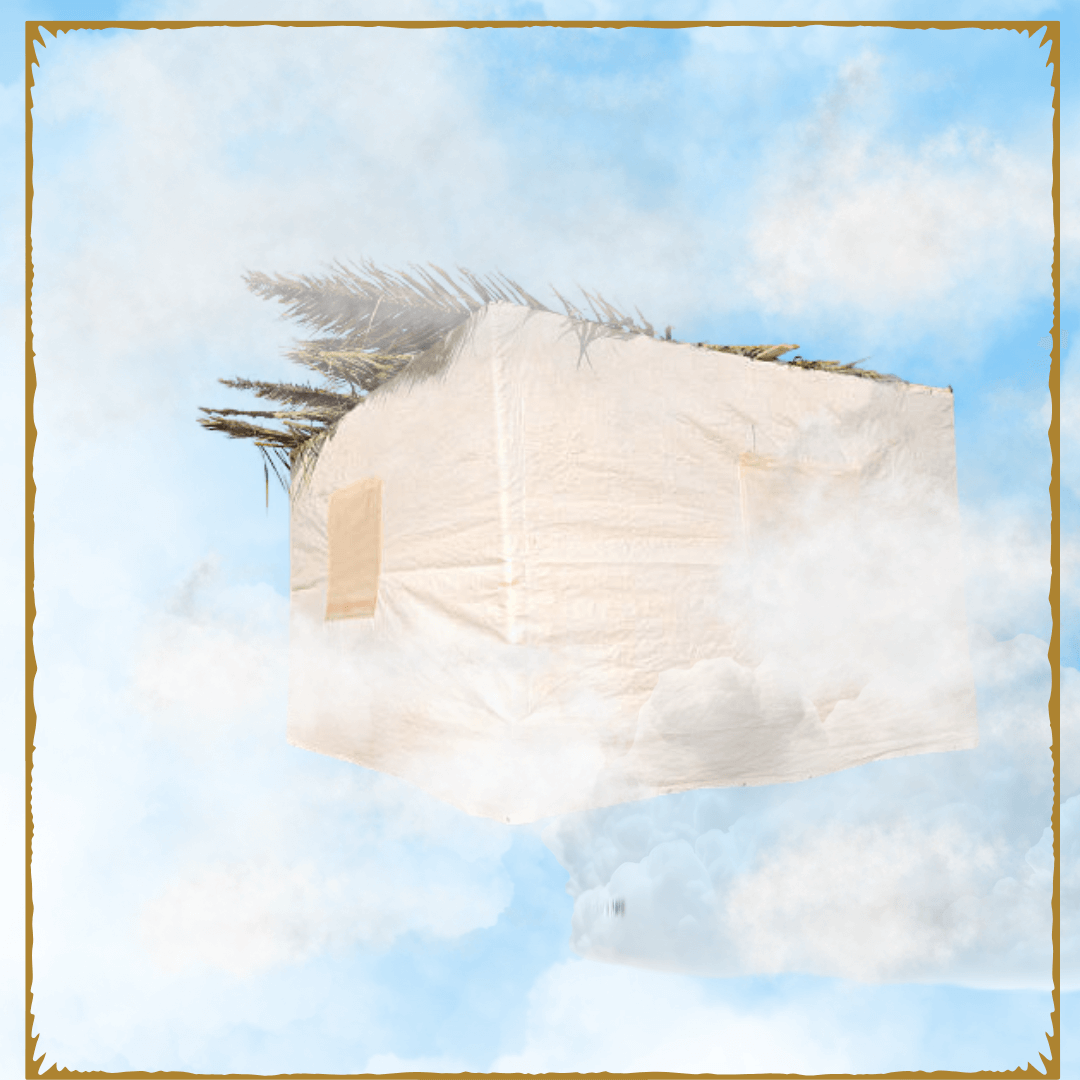cloud sukkah!
a holiday metaphor, talmudic spelunking

Modaim l'simcha to everyone celebrating Sukkot right now!
Depending on where you're coming from in this great sea of Jewish learning, you may or may not have heard this metaphor of the sukkah – the temporary booths in which Jews dwell for a week during the fall harvest holiday of Sukkot – as a cloud.

If you've only seen one tiny snippet of text from the Talmud (Sukkot 11b) it seems... like it's yet another midrash that might come from out of nowhere.
But this is a great example of the fact that midrashim just about never come from nowhere. They're the product of thoughtful, nuanced readings of biblical texts, building with their own deep internal logic.
Today we get to play with a groovy metaphor and better understand how rabbinic thinking happens!
(Hopefully you can follow just by reading through, but if you want to go deeper or if you're studying with a hevruta, the questions at the bullets should guide you. There's a LOT, so don't feel like you have to do everything!)
To understand how this works, first, let's look at the chunk of text that generally gets cited:
It's taught [in an early Rabbinic text called a baraita] that in verse where God says “I made the children of Israel to reside in sukkot” (Leviticus 23:43); these booths were clouds of glory, this is the statement of Rabbi Eliezer. Rabbi Akiva says: [the Israelites] established for themselves actual sukkot. This works out well according to Rabbi Eliezer; however, according to Rabbi Akiva what can be said? (Sukkot 11b)
The editorial voice of the Talmud seems to be saying that Rabbi Eliezer's position– that the original sukkot were not actually, like, literal huts in the desert, but, rather, "clouds of glory"– is the winning one. I mean, what can you offer for Rabbi Akiva's basic sage claim?

But that's not actually quite right. And the whole thing seems kind of weird, no?
Let's unpack.
